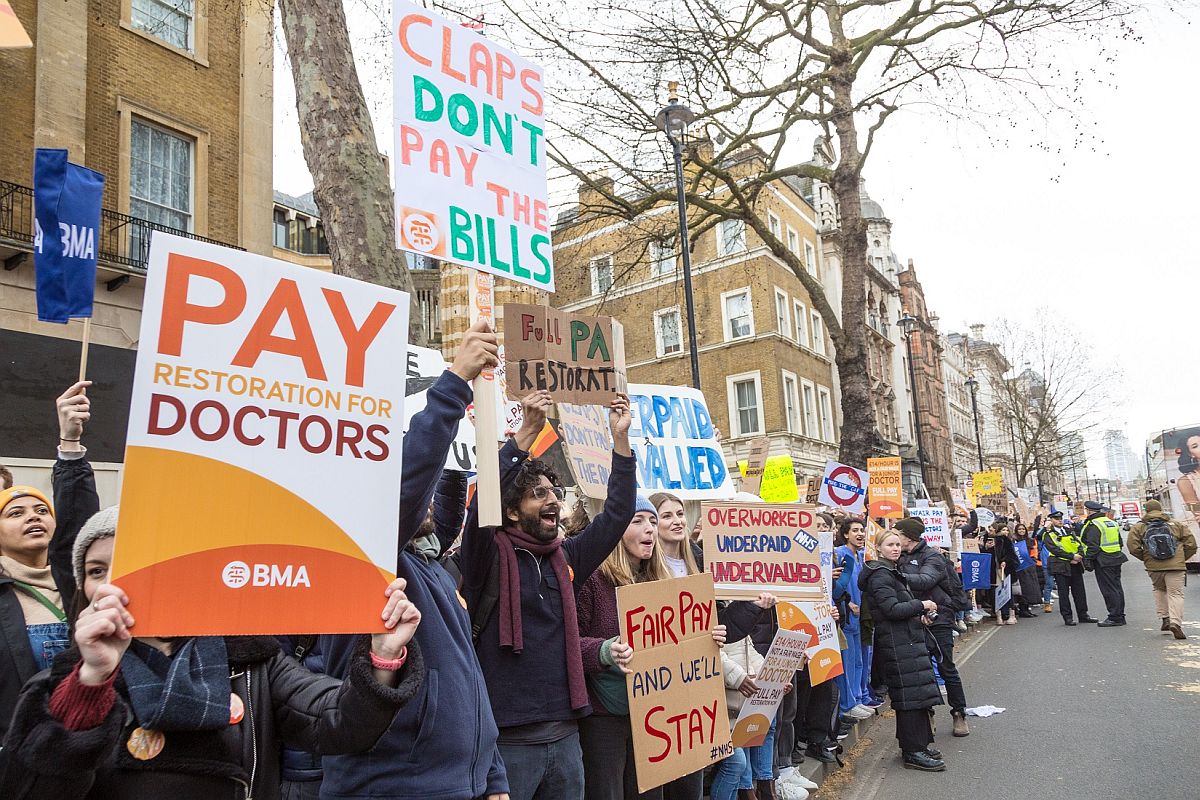KUALA LUMPUR, March 14 – Thousands of junior doctors in England have gone on a three-day strike to protest against their pay, which they claim is lower than that of a barista on an hourly basis.
The strike is the latest in a series of demonstrations by National Health Service (NHS) staff in Britain, including nurses, paramedics, and others who are calling for a pay increase that reflects double-digit levels of inflation.
The British Medical Association (BMA), a trade union and professional body for doctors in the UK, has been pushing for a pay increase for several months amid the country’s cost-of-living crisis.
Despite negotiations between the union and the government, an agreement has yet to be reached. Talks are set to continue this week in the hopes of resolving the ongoing pay dispute.
Before the strike began, the BMA launched an advertising campaign highlighting that junior doctors could earn more money working at Pret a Manger, a popular cafe chain.
“Pret a Manger has announced it will pay up to £14.10 (RM76) per hour. A junior doctor makes just £14.09. Thanks to this government you can make more serving coffee than saving patients. This week junior doctors will take strike action so they are paid what they are worth,” BMA said, according to The Independent.
The union said that junior doctors in England have experienced a real-terms pay decline of 26.1 per cent since 2008/09 and are advocating for their pay to be restored.
The results of the NHS Staff Survey 2022 revealed that even though Covid-19 cases have dropped, the morale of NHS staff is declining and more employees are considering leaving their jobs.
Roughly a third of the staff frequently contemplate leaving, with 17 per cent indicating they will resign as soon as they secure another job. The ambulance services and acute care sectors are the most affected by work pressures and thoughts of quitting.
Staff satisfaction with their pay has also decreased significantly, especially among those in the ambulance and acute care sectors, potentially due to the rising cost of living and mounting work pressures.








